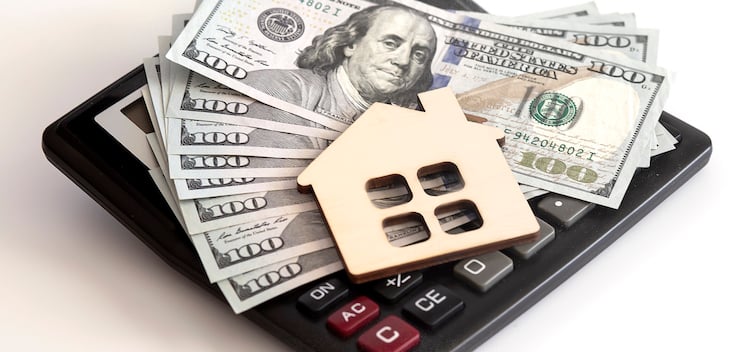What happens to the depreciation claimed over the years when you sell residential rental property? This is an important question for real estate investors, as depreciation can be a significant tax deduction.
In this blog post, we will explain how depreciation recapture works when you sell a rental property. We will also discuss how investors can defer paying taxes on depreciation recapture by doing a 1031 tax-deferred exchange.
Key takeaways
- Depreciation is recaptured and taxed when a rental property is sold.
- Depreciation recapture tax is based on an investor's federal income tax bracket, up to a maximum of 25%.
- The impact of depreciation recapture tax can be minimized with a 1031 tax-deferred exchange or an installment sale.
What is depreciation, and how is it calculated for rental properties?
Depreciation is a significant tax deduction for real estate investors, but it's often misunderstood. Residential rental property depreciation is a way to recover the cost of your investment over time.
The Internal Revenue Service (IRS) allows real estate investors to depreciate rental property for tax purposes. This encourages investment in rental property by making it more affordable and improving cash flow.
Depreciation is a technique used to recover the cost of an asset over its useful life. It is treated as an expense on the income statement, which reduces taxable income and, therefore, tax liability.
When you depreciate your rental property, you can deduct a portion of the cost each year from your taxes. The deduction amount depends on the type of property and how long you own it. For example, if you purchase a rental home for $200,000 and depreciate it over 27.5 years, you can deduct $7,273 each year from your taxes.
This can save you thousands of dollars over the life of your investment. While depreciation is a valuable tax deduction, it's important to remember that it does not reduce the actual value of your property. Depreciation is a noncash expense used to offset income from your rental property.
The IRS provides guidance on calculating depreciation for rental property in Publication 527, Residential Rental Property. Real estate investors can use depreciation to their advantage by carefully planning their investment strategies and taking advantage of this powerful tool.
However, you will need to recapture the depreciation as taxable income when you sell your property. For this reason, it's essential to consult with a tax professional to ensure that you are taking advantage of all the tax benefits available to you as a real estate investor.
How does depreciation affect your taxes when you sell a rental property?
Depreciation is a significant tax deduction for rental property owners, as it helps to offset the wear and tear that naturally occurs over time. When selling the property, however, the depreciation that has been taken must be recaptured and paid back to the government. This is because depreciation is considered to be a form of deferred income, and when the property is sold, the deferred income becomes taxable.
To calculate the amount of depreciation that must be recaptured, you will need to know your cost basis in the property (the original purchase price plus any capital improvements that have been made) and the depreciation schedule for your property type. Once you have this information, you can determine your recapture rate by subtracting the amount of depreciation claimed from your cost basis.
For example, if you have a rental property with a cost basis of $200,000 and have claimed $50,000 in depreciation during the time you held the property, you would need to recapture and pay a depreciation recapture tax on the $50,000 of depreciation claimed.
Depreciation recapture tax is a type of capital gains tax that is levied when an asset is sold for more than its depreciated value. The tax rate depends on the type of asset and the time it was held. For example, the maximum rate for depreciation recapture on real estate is 25% and is based on an investor's federal income tax bracket.
The IRS provides detailed guidance and the current tax rates for depreciation recapture in Publication 544, Sales and Dispositions of Assets.
Tips for keeping track of rental property depreciation
One of the most important things to keep track of is depreciation when it comes to rental property. This is because depreciation can be used to offset any rental income you earn from the property, which can ultimately reduce your tax liability.
There are a few different systems that a real estate investor can use to keep track of rental property depreciation, income, and expenses.
One option is to use a spreadsheet to enter all income and expense items. This can be a simple way to stay organized, but it requires some bookkeeping skills. Another option is to use specialized software designed specifically for tracking rental property finances, such as free software from Stessa, a Roofstock company.
By using Stessa, owners monitor their rental property investments from a single, comprehensive dashboard that they can then use to make better, more informed decisions to optimize performance and returns. In addition, Stessa makes it extremely simple to track rental property income, expenses, and depreciation from the comprehensive online owner's dashboard.
Depreciation expense is automatically tracked, and property values are periodically updated to provide a more accurate idea of owner's equity and depreciation recapture tax liability when a rental property is eventually sold.
Whichever method you choose, be sure to create a record by saving receipts for all repairs and improvements made to your rental properties. This will provide documentation in the event that the IRS questions your deductions. By following these tips, you can ensure that you're taking full advantage of the tax benefits available to rental property owners.
Are there any ways to minimize the impact of depreciation on your profits from selling a rental property?
When you sell a rental property, the depreciation is recaptured and taxed as ordinary income at your marginal tax rate, up to a maximum 25% rate. Fortunately, investors can use a couple of strategies to minimize the impact of depreciation recapture tax.
One option is a "like-kind exchange" or 1031 tax-deferred exchange. A 1031 exchange allows investors to defer paying capital gains tax on the sale of an investment property by reinvesting the proceeds into a similar property.
To qualify for this tax-deferred exchange, investors must follow a few rules. First, they must identify a replacement property within 45 days of selling the original property. Second, they must purchase the replacement property within 180 days of selling the original property. Lastly, they must use a qualified intermediary to facilitate the exchange.
By following these rules, investors can defer paying depreciation recapture tax and capital gains tax, allowing them to reinvest their money and grow their portfolios.
Another option is to sell the property through an installment sale. This means that you receive payments for the sale of the property over time rather than all at once. This can help you spread out the tax liability from the sale over several years, which can be helpful if you're in a lower tax bracket during those years. However, installment sales also have some restrictions and requirements, so it's important to talk to your accountant or tax advisor to see if this option makes sense for your situation.
What are some other things to think about when selling a rental property?
When selling a rental property, it's essential to remember that the transaction will be different from selling your primary residence. For one, you'll likely be working with a different pool of buyers—namely, investors who are looking for a return on their investment.
As such, it's important to price the property accordingly. In general, buyers are looking for a property that will generate a positive cash flow, so be sure to factor in things like operating expenses and vacancy rates when setting your asking price.
Additionally, it's crucial to consider factors that can affect the value of a rental property, including the condition of the property, the location, and the amenities. You'll also need to ensure that all of your paperwork is in order, as potential buyers will likely want to see things like leases and maintenance records.
By keeping these things in mind, you can maximize your chances of getting a top-dollar offer on your rental property.
Closing thoughts
Depreciation recapture tax can be a hefty expense for real estate investors, but there are ways to defer or even avoid paying it altogether. By understanding depreciation recapture and how it is taxed, you can decide when and how to sell your properties to minimize your potential tax liability.










